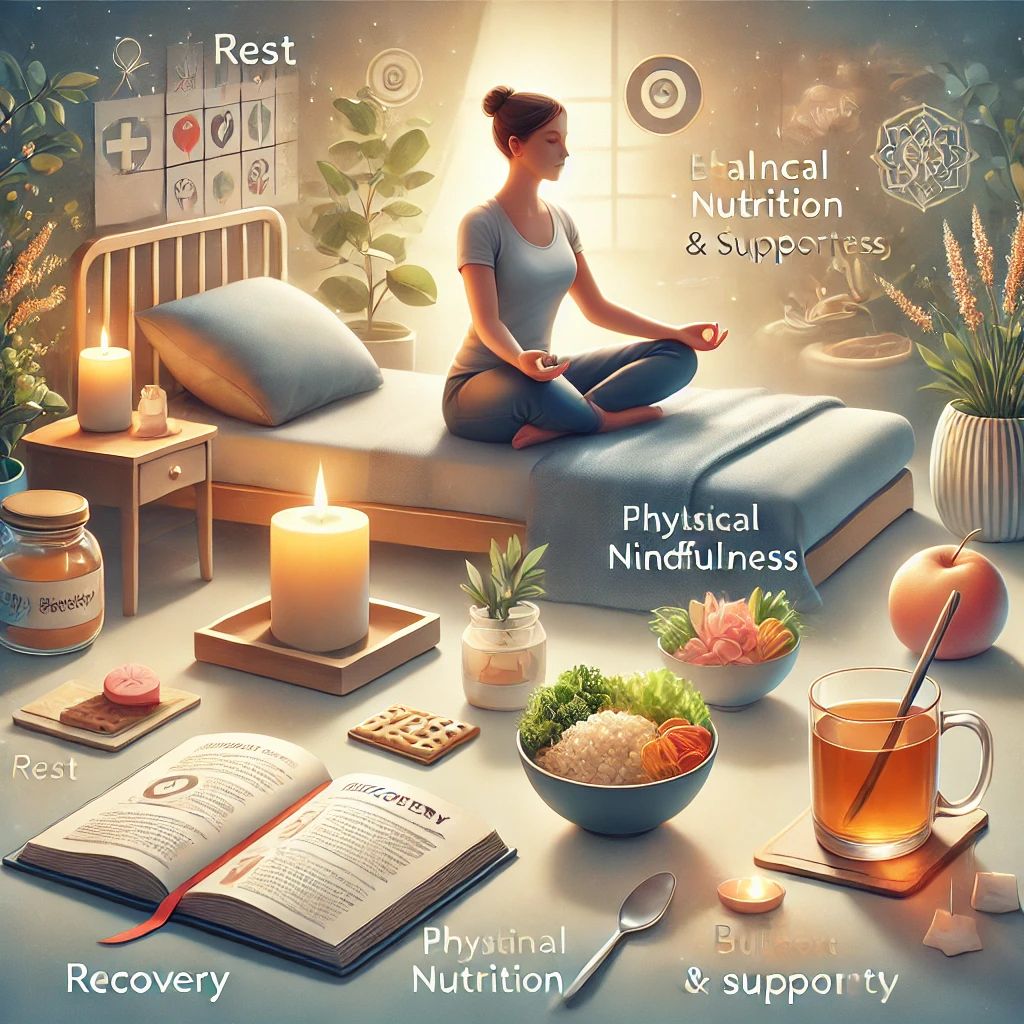
Why Self-Care is Essential in Recovery
Recovery, whether it’s from illness, addiction, surgery, or emotional trauma, is a long and often challenging process. During this time, self-care is more than just a luxury—it’s a necessity. Self-care practices help support both your physical and emotional well-being, allowing you to heal more effectively and build resilience. By prioritizing self-care during recovery, you create an environment that fosters long-term healing, growth, and overall well-being.
The Importance of Self-Care for Mental and Physical Recovery
Self-care during recovery helps address not only your physical needs but also the emotional and mental challenges that often accompany the healing process:
Emotional support: Self-care practices such as mindfulness, journaling, and connecting with others can help you process complex emotions and maintain a positive outlook during recovery.Physical healing: Proper rest, nutrition, and gentle physical activity are essential for supporting your body’s natural healing processes and preventing setbacks.Resilience building: Recovery can be mentally and emotionally taxing. Self-care routines help build emotional resilience, allowing you to cope with stress and challenges more effectively.Key Self-Care Practices for Recovery
Here are some essential self-care strategies to support your recovery, whether you’re healing physically, emotionally, or mentally.
1. Prioritize Rest and Sleep
Rest is a vital part of any recovery process. Your body needs time to heal, and quality sleep is essential for repairing tissue, managing stress, and maintaining a strong immune system:
Create a sleep routine: Establish a consistent bedtime routine that promotes relaxation. This could include reading, meditating, or listening to soothing music before bed.Limit distractions: Make your bedroom a restful environment by reducing noise, light, and screen time before sleeping.Listen to your body: During recovery, it’s important to take naps or rest when your body signals that it’s tired. Don’t push yourself too hard—rest is your body’s way of restoring energy.2. Nourish Your Body with Healthy Foods
Nutrition plays a key role in recovery, providing your body with the nutrients it needs to heal:
Eat whole foods: Focus on nutrient-dense foods such as fruits, vegetables, lean proteins, and whole grains. These provide the vitamins and minerals necessary for cellular repair and energy.Hydrate regularly: Staying hydrated is critical, as dehydration can slow down recovery and affect your mood and energy levels. Drink plenty of water throughout the day.Avoid processed foods: Minimize your intake of processed, sugary, or fried foods, as they can lead to inflammation and slow down healing.3. Practice Gentle Physical Activity
Movement can be a powerful tool in recovery, but it’s important to listen to your body and engage in gentle exercises that support healing:
Start slow: Depending on the nature of your recovery, gentle activities like walking, stretching, or yoga can help improve circulation, reduce stress, and boost your mood.Physical therapy: If you’re recovering from surgery or an injury, follow your physical therapist’s guidance to ensure you’re moving safely and effectively.Focus on flexibility and mobility: Incorporating gentle stretches into your routine can help relieve tension and maintain flexibility, especially if you’re recovering from physical trauma.4. Mindfulness and Mental Health Care
Mental and emotional health are crucial components of recovery. Self-care practices that nurture your mental well-being can help you stay grounded and focused during the healing process:
Meditation and deep breathing: Mindfulness practices can reduce anxiety and help you manage stress. Even a few minutes of meditation or deep breathing each day can bring a sense of calm and control.Journaling: Writing about your experiences, feelings, and challenges can help you process emotions and track your progress throughout recovery.Seek professional help: If you’re struggling with your mental health, consider speaking to a therapist or counselor. Professional support can provide valuable coping strategies for dealing with the emotional complexities of recovery.5. Build a Support System
Having a strong support system during recovery is essential for emotional well-being. Whether it’s friends, family, or a support group, surrounding yourself with understanding individuals can make a significant difference:
Reach out to loved ones: Share your feelings and experiences with people you trust. Simply talking about your recovery journey can provide emotional relief and reduce feelings of isolation.Join a support group: Consider joining a support group where you can connect with others who are going through similar experiences. Sharing insights and encouragement can be incredibly uplifting.Ask for help: Don’t hesitate to ask for assistance with tasks you can’t manage on your own. Whether it’s running errands or offering emotional support, leaning on others is part of self-care.6. Set Realistic Goals and Expectations
It’s important to set achievable goals during recovery to prevent frustration and disappointment. Be patient with yourself as you heal:
Celebrate small wins: Recovery is often a slow process, but every small step forward is a victory. Celebrate these milestones, whether it’s physical progress or emotional resilience.Be kind to yourself: Understand that setbacks are normal, and healing isn’t always linear. Practice self-compassion, and avoid being overly critical if things don’t go exactly as planned.Create a routine: Establish a daily routine that balances rest, movement, and self-care activities. A routine provides structure and a sense of normalcy during recovery.Conclusion: Self-Care is Essential for a Full Recovery
Incorporating self-care into your recovery process is not just beneficial—it’s essential. Whether you’re healing from a physical condition, emotional trauma, or mental health challenges, self-care helps nurture your body and mind. From prioritizing rest and nutrition to engaging in mindfulness and building a strong support system, these self-care practices can help you regain strength and well-being on your recovery journey.
The article was prepared by Lyle Gardner.



